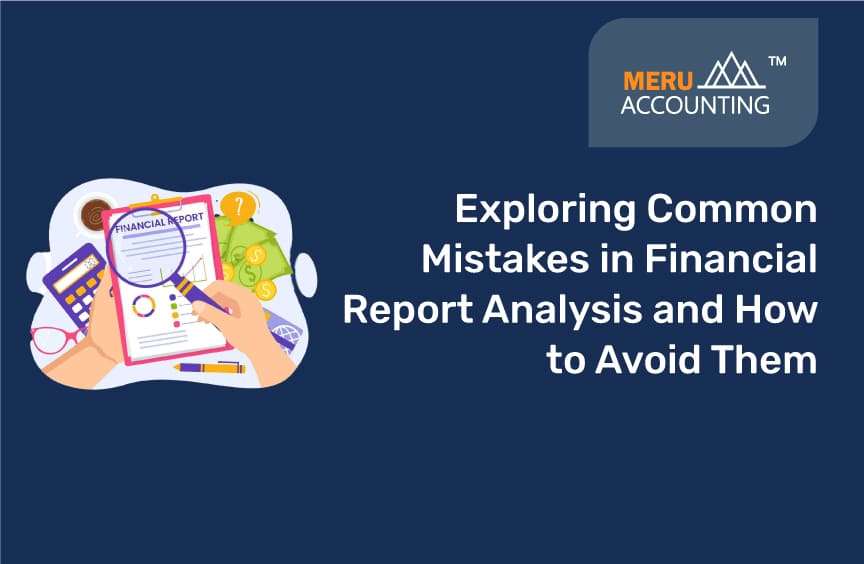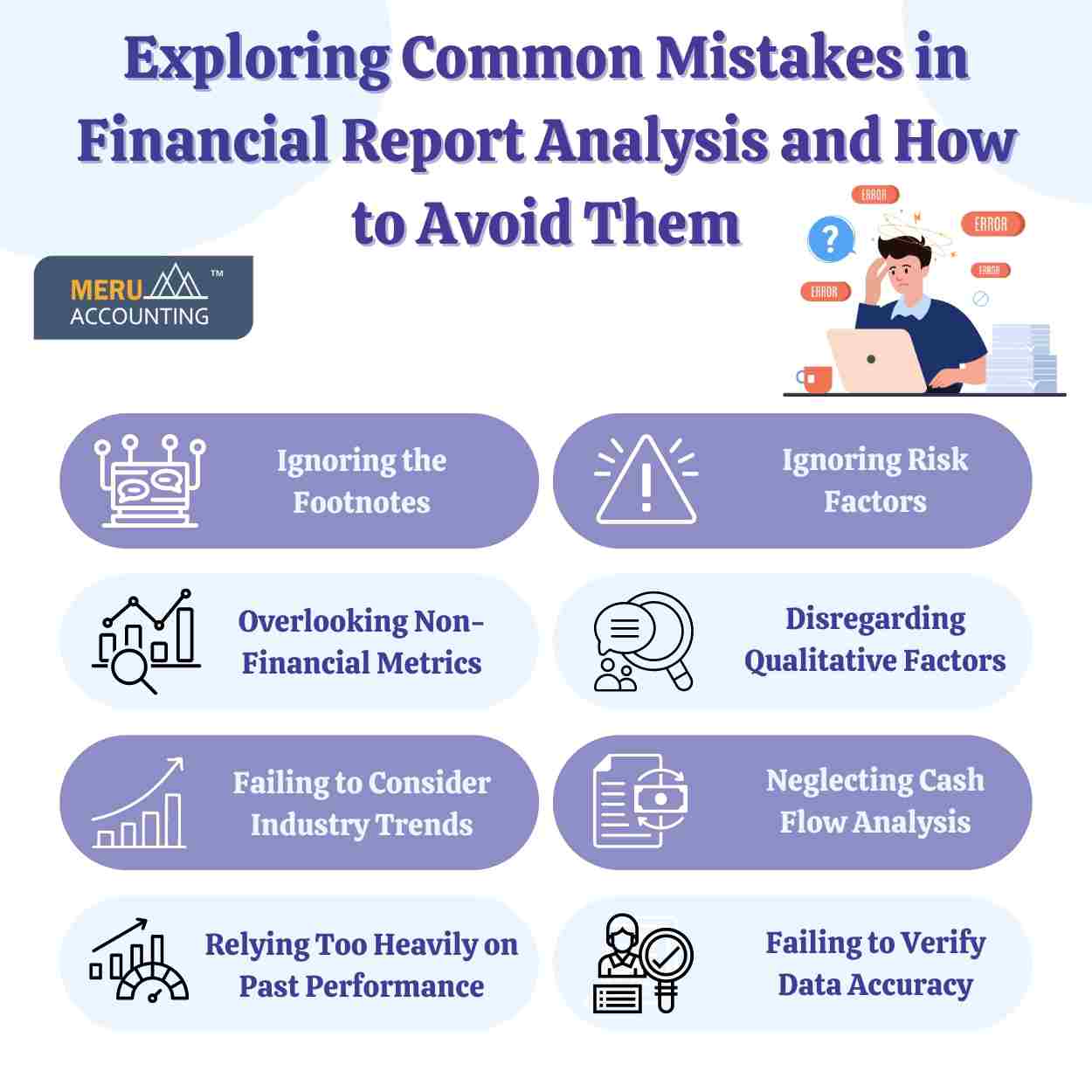Table of Contents

Common Mistakes in Financial Report Analysis
Financial report analysis is a critical aspect of understanding a company's financial health and making informed decisions. However, it's not without its pitfalls.
Some common mistakes in financial report analysis are:
- Ignoring the Footnotes: One common mistake is overlooking the footnotes in a financial audit report. These footnotes often contain crucial information that can significantly impact the interpretation of the financial statements. Always pay attention to footnotes as they provide context and explanations for the numbers presented.
- Overlooking Non-Financial Metrics: While financial metrics are essential, focusing solely on them can lead to a skewed analysis. Non-financial metrics like customer satisfaction, employee turnover, and market share can provide valuable insights into a company's overall performance and prospects. Incorporating these metrics into financial audit report analysis provides a more comprehensive view.
- Failing to Consider Industry Trends: Another mistake is neglecting to consider industry-specific trends and benchmarks. What might be considered a positive financial indicator in one industry could be concerning in another. Always benchmark financial performance against industry standards to gain a clearer understanding of a company's position relative to its peers.
- Relying Too Heavily on Past Performance: While past performance can provide valuable insights, relying solely on historical data can be risky. Market conditions, regulations, and competitive landscapes change over time, impacting future performance. It's essential to supplement historical data with forward-looking analysis, considering factors like market trends, technological advancements, and strategic initiatives.
- Ignoring Risk Factors: Every investment carries inherent risks, and failing to assess and mitigate these risks can lead to costly mistakes. When analyzing financial reports, pay close attention to risk factors disclosed by the company. Evaluate how these risks may impact future performance and consider strategies to manage or mitigate them.
- Disregarding Qualitative Factors: Financial audit report reports often focus on quantitative data, such as revenue, expenses, and profits. However, qualitative factors, such as management competence, brand reputation, and corporate culture, also play a crucial role in a company's success. Incorporating qualitative analysis alongside quantitative metrics provides a more holistic view of the business.
- Neglecting Cash Flow Analysis: Profitability is important, but so is cash flow. Neglecting cash flow analysis can lead to misunderstandings about a company's liquidity and financial stability. Analyze cash flow statements to assess how effectively a company generates and manages cash, ensuring it can meet its short-term and long-term obligations.
- Failing to Verify Data Accuracy: Lastly, failing to verify the accuracy of the data in financial reports can lead to faulty conclusions. Always cross-reference financial statements with other sources, such as regulatory filings or industry databases, to ensure data integrity. Scrutinize inconsistencies or irregularities and seek clarification from the company if necessary.
To avoid common mistakes in financial report analysis, it's important to be diligent, pay attention to detail, and take a comprehensive approach. By looking at both numbers and other relevant factors, staying updated on industry trends, and making sure the data is accurate, investors and analysts can make better decisions and reduce the risk of errors. For expert help with financial audits and analysis, you can rely on the professionals at Accounts Junction to ensure that your financial reports are accurate and useful. Accounts Junction provides outsourcing bookkeeping solutions globally.

